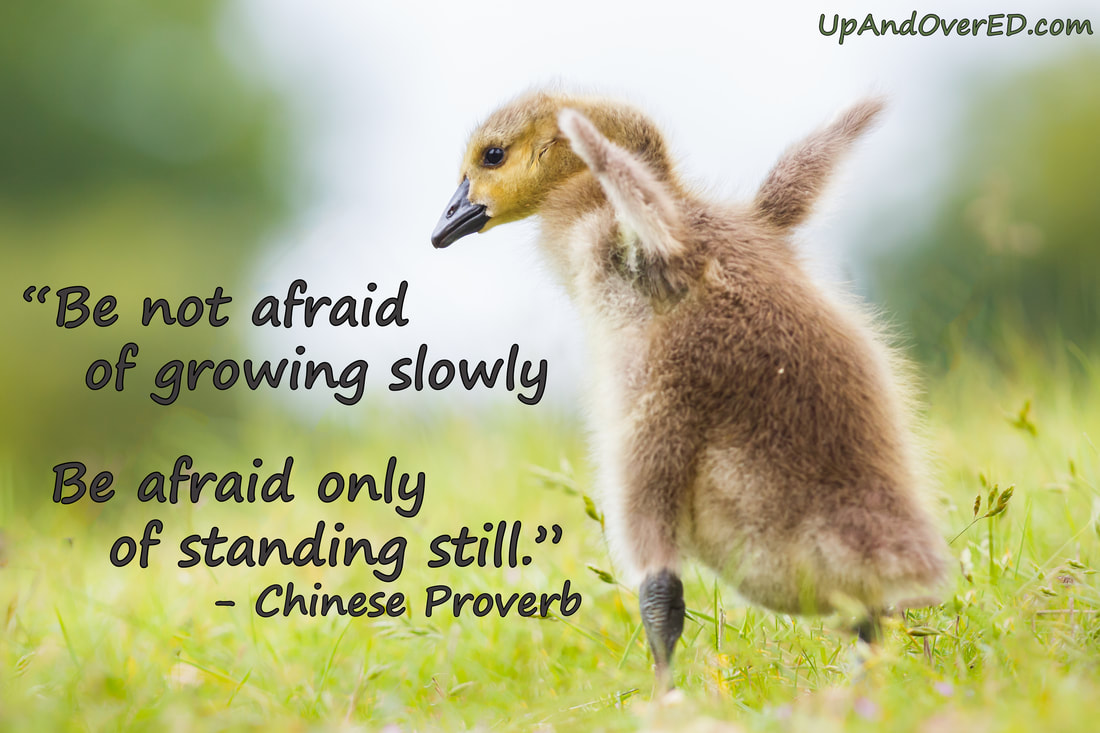| We live in a world obsessed with early achievement. We read articles in Forbes and Times about the “Top 30 under 30” super achievers. We applaud seventeen year old Malala Yousafzai, the youngest Nobel Prize winner. We are awed by young tech founders like Mark Zuckerberg of Facebook and Evan Spiegel of Snapchat. Parents pay $20,000 to $40,000 a year for |
full immersion second language courses and rigorous academic curriculums – for their preschoolers.
There is nothing inherently wrong with early success. But my concern is that because everyone learns and grows at different rates, with the societal emphasis on early achievement, we leave behind a large group of children who just need more time to bloom. Many of these late blooming students lose hope, and we have to ask ourselves – what can we do?
There is nothing inherently wrong with early success. But my concern is that because everyone learns and grows at different rates, with the societal emphasis on early achievement, we leave behind a large group of children who just need more time to bloom. Many of these late blooming students lose hope, and we have to ask ourselves – what can we do?
| I am the mother of a late bloomer. My son did not talk until he was two years old, and he did not read or write until he was ten. He was your classic (and normal) hyperactive boy with dyslexia. I was parenting and homeschooling this young child over twenty years ago, and part of what gave me patience to wait for my son to bloom on his own time schedule was reading the book Better Late than Early by Dr. Raymond Moore. |
Moore’s research proposed that children are not psychologically ready for formal learning until ages eight to ten, and he suggested waiting for formal study until students had the maturity and logic skills necessary so they did not become frustrated and discouraged from trying to handle material they were simply not ready to understand.
But just because my son couldn’t read did not mean he was not exposed to books. As a family, we read out loud every night. We started with picture books, but soon we were reading the Little House on the Prairie series (all of them) the Chronical of Narnia series (all of them), plus other classics like the Hobbit and Treasure Island. My son built things, put things together and took them apart, cooked, gardened, helped his Dad at work and was learning all the time. He enjoyed fixing things and was often tightening screws, looking at the plumbing under the sink and helping his dad work on motorcycle engines. He was learning to love learning, he was gaining skills, and he was laying the ground work so that when the time came, he would be ready to bloom.
But just because my son couldn’t read did not mean he was not exposed to books. As a family, we read out loud every night. We started with picture books, but soon we were reading the Little House on the Prairie series (all of them) the Chronical of Narnia series (all of them), plus other classics like the Hobbit and Treasure Island. My son built things, put things together and took them apart, cooked, gardened, helped his Dad at work and was learning all the time. He enjoyed fixing things and was often tightening screws, looking at the plumbing under the sink and helping his dad work on motorcycle engines. He was learning to love learning, he was gaining skills, and he was laying the ground work so that when the time came, he would be ready to bloom.
| According to Rich Karlgaard, author of Late Bloomers: The Power of Patience in a World Obsessed with Early Achievement, “a late bloomer is a person who fulfills their potential later than expected; they often have talents that aren’t visible to others initially. The key word here is expected. And they fulfill their potential frequently in novel and unexpected ways, surprising even those closest to them.” |
He goes on to say, “Think about a starting point for a late bloomer. In all probability, his or her talents and passions were overlooked by a culture and educational system that measures for a cruelly narrow range of skills. It closed off the person’s paths of discovery and encouragement and potential. It did not open the doors to a successful future for them because it didn’t even see them.”
As a tutor, I work with a lot of these unseen students, and it is heartbreaking to hear and see the discouragement and lack of hope many of them suffer. One of the challenges for many students is that the prefrontal cortex in the frontal lobe of the brain is the last part of the brain to fully develop, and this often does not happen until an adult is in his or her mid-twenties. This part of the brain is responsible for executive function with includes: organizing, planning, problem solving, memory recall and attention allocation. Executive function has nothing to do with talent, IQ or potential, but without it, it becomes difficult for a person to fully bloom.
Is there hope? Yes!
Here are Nine Ways You Can Help Late Bloomer Students:
1. Help with tasks that require executive function.
While waiting for a child to fully bloom, parents and others can step in and assist with tasks that require executive function until a youth is ready to take on more of those activities his or herself. With my son, I coached and tutored him through high school, and when he started at Cuesta College, I helped him with time management and planning his classes, and I tutored him through many of the classes as well by helping him organize his class notes in a way that he could learn the information. This allowed him to continue to gain skills that he could not have done without help. He slowly acquired basic writing skills, the ability to understand math patterns, and knowledge of history, art, science and economics through his high school and college classes. These skills would provide pivotal when the time came when he did bloom.
2. Help your child to keep learning.
Many students have difficulty in loud and distracting classroom environments. They may need a parent or another person to reteach material they missed in class. Other students have difficulty reading, and they may need material summarized or outlined for them so they can better organize the material in their brains. Some students process by talking and need a listening ear so they can talk over the material they are learning. It is important that late bloomers keep learning.
As a tutor, I work with a lot of these unseen students, and it is heartbreaking to hear and see the discouragement and lack of hope many of them suffer. One of the challenges for many students is that the prefrontal cortex in the frontal lobe of the brain is the last part of the brain to fully develop, and this often does not happen until an adult is in his or her mid-twenties. This part of the brain is responsible for executive function with includes: organizing, planning, problem solving, memory recall and attention allocation. Executive function has nothing to do with talent, IQ or potential, but without it, it becomes difficult for a person to fully bloom.
Is there hope? Yes!
Here are Nine Ways You Can Help Late Bloomer Students:
1. Help with tasks that require executive function.
While waiting for a child to fully bloom, parents and others can step in and assist with tasks that require executive function until a youth is ready to take on more of those activities his or herself. With my son, I coached and tutored him through high school, and when he started at Cuesta College, I helped him with time management and planning his classes, and I tutored him through many of the classes as well by helping him organize his class notes in a way that he could learn the information. This allowed him to continue to gain skills that he could not have done without help. He slowly acquired basic writing skills, the ability to understand math patterns, and knowledge of history, art, science and economics through his high school and college classes. These skills would provide pivotal when the time came when he did bloom.
2. Help your child to keep learning.
Many students have difficulty in loud and distracting classroom environments. They may need a parent or another person to reteach material they missed in class. Other students have difficulty reading, and they may need material summarized or outlined for them so they can better organize the material in their brains. Some students process by talking and need a listening ear so they can talk over the material they are learning. It is important that late bloomers keep learning.



 RSS Feed
RSS Feed
